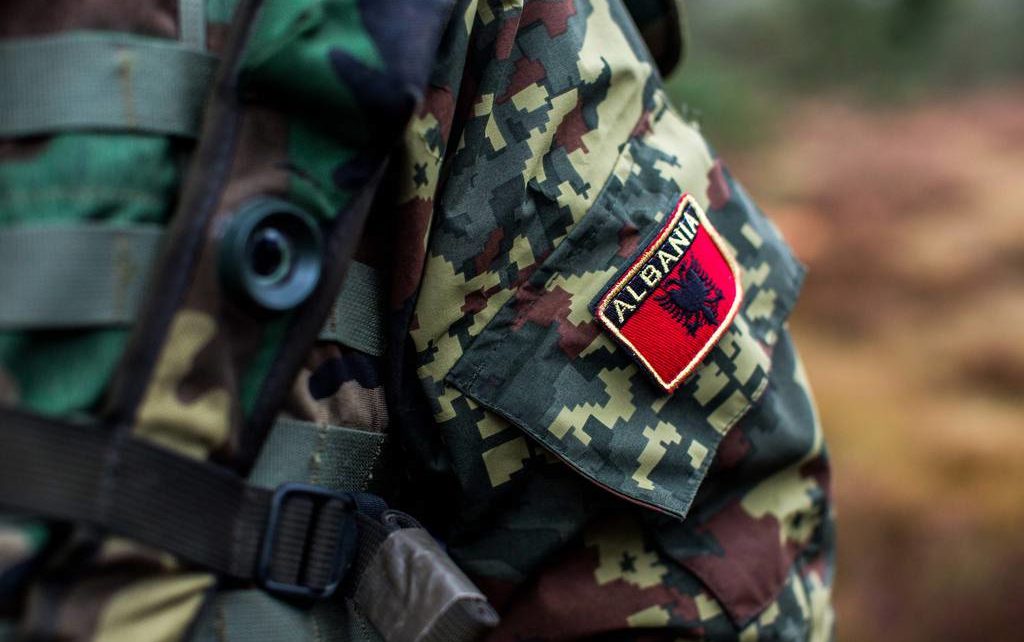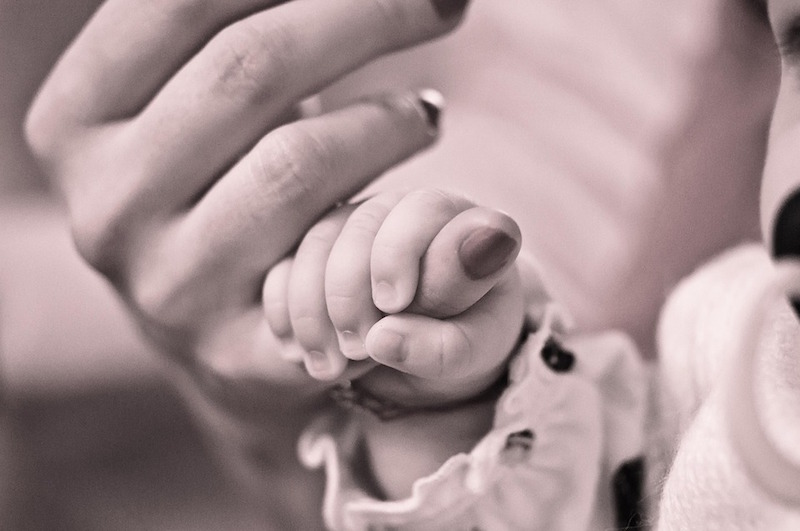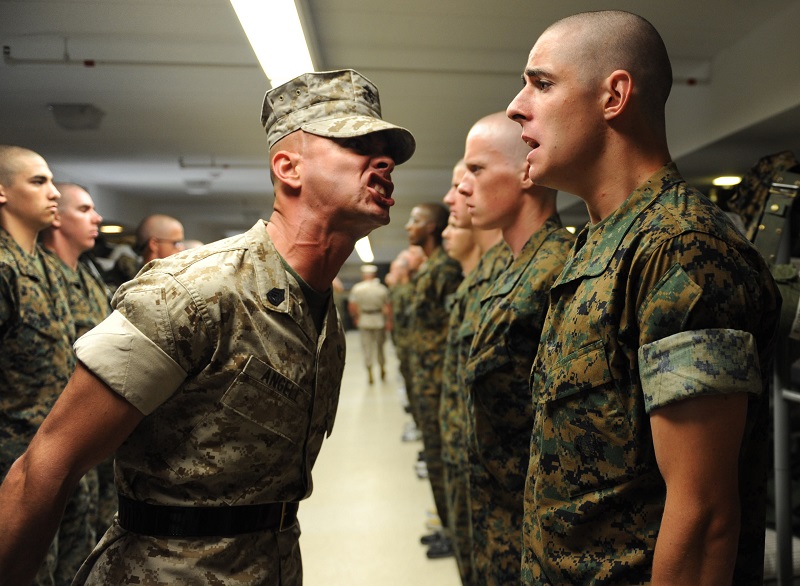Women in positions of leadership has been a subject of debate recently in the Albanian Armed Forces. Discussions on the involvement of women in top positions remain controversial and fluid amongst members of Albanian society. However, a new political improvement was the commitment to the adoption of the UN resolution on Women Peace and Security, which served as the benchmark for the forthcoming Albanian National Action Plan (ANAP). The topic of the involvement of women in the defence and security sector started to gain traction in 2011 when Albania officially started implementing the UN resolution 1325 on Women, Peace and Security based on an inter-institutional approach on a local and national level. Despite the ongoing progress made in ten years, the figures on paper differ from reality.
When it comes to numbers showing involvement of women, there is a credible improvement. But if we examine indicators set by the National Action Plan such as the involvement of women in top leadership positions in addition to relevant structures and the levels of promotion in higher ranks in the defence and security sector, there is a need to set a common ground understanding in Albania beyond the idea that women have a role in conflict prevention and conflict resolution. In reality this positive commitment to raising the percentage of women involved in the security and defence sector does not do justice to the efforts of girls and women who are committed and deserve to further their career in leadership tasks beyond the token level. In other words, the Women Peace and Security agenda should further the leadership of women beyond just parity itself.
The UN resolution and the document of ANAP during 2018- 2020 are instruments that counter the old fixed narrative that the security and defence sector is a male domain. The decision to implement the resolution and ANAP created confusion. Trying to raise the recruitment of women at the quota level, it was impossible to address other obstacles still in place to women’s full and meaningful participation in security sector decision-making. Starting from the goodwill gesture of implementing UN Resolution 1352, we continued to unnaturally promote the idea that the only way to gain more peace and security is by including a higher number of women in the field of national and international security. And it doesn’t have to work like this. Raising the percentage doesn’t imply qualitative inclusiveness. It also makes it impossible for the fulsome incorporation of NATO’s approach to the Women, Peace and Security agenda based on 3 I’s – Integration, Inclusiveness, and Integrity.
Mainstreaming women and girls’ involvement in the armed forces has created a gendered crisis in Albanian society. Thus, we have to shift away from this mindset of 30 years ago, which imposed upon our democratic societies the necessity of quotas. Instead, we need to understand and realise that securing our societies can be achieved by guaranteeing human rights and respecting the integrity of women in every step of their career. Respecting their rights to promotion based on the acknowledged legal achievements in each chain of command will result in naturally increasing the number of women in top leadership positions.
Despite the fact that the Armed Forces have undertaken a modernisation process in this direction, the current patriarchal pattern speaks louder than the official numbers of women in the armed forces. This pattern is also an alert showing that in fact women in peace and security are not naturally represented. And at the same time, it shows that there is still much to do in order to change the old- fashioned patriarchal military culture, which is contributing to the collapse of our institutional values. On the military side, there appears to be a rising trend with Women Peace and Security-oriented (WPS) implementation in Albania, as 35.4 percent of the new officers that joined the Albanian army in 2019 were women. In numbers alone, there is certainly a positive trend. However, the number of women in leadership positions does not demonstrate the same trend.
From a historical perspective, the Armed Forces of Albania has always had a male figure in positions of leadership. During the years of ANAP, Albania has seen some symbolic improvements. Albania had the first Woman to serve as Minister of Defence, followed with another woman in this top leadership position. One of the most visible to be added to these improvements was the decoration of the first woman serving as the first General in 2018, who has since then been the Deputy Chief of the General Staff of the Albanian Armed Forces. These developments show symbolic changes instead of systemic structural improvements.
In order to change our political orientation toward the involvement of girls and women in this sector we need to change the old paradigm of the male-dominated mindset. This shift can be possible by having more open public discussion in our societies. There is a lack of collective effort such as: a missing public discussion as well as a lack of will to conduct a comprehensive analysis about this critical situation starting from its very foundation. The real struggle starts in the educational system. Although numbers of women in higher ranks both internally in our armed forces and in terms of representation, the numbers abroad are very discouraging. It is even more alarming to note the threat that results in a decreasing interest of women and girls to be enrolled in our Armed Forces. Another challenge is the process of training continuity. Finding themselves in the middle of a patriarchal culture at the bottom and artificially promoting women to token leadership positions, girls and women experience difficulties in receiving the appropriate training continuity. A continuity which is challenged in itself by the constant political changes in our fragile societies. Due to an unstable political system, there is no systematic continuity in gaining the appropriate promotion.
This crisis in our armed forces educational system results in an artificial security and defence sector where women and girls are represented according to the fulfilment of quotas and not according to their deserved promotion in higher ranks. These challenges such as the artificial imposing of quotas and the crisis in the armed forces educational system cannot be fought by a single Action Plan. There is quite a big difference from writing an action plan on paper and the reality that follows the involvement of girls and women in the security and defence sector. Without settling these challenges, we cannot pretend to have a suitable framework of promotion of women to top leadership positions. One’s promotion shouldn’t be entitled due to a quota set framework but due to a merit-base framework.
Image copyright: An Albanian soldier during Silver Arrow 2016, by NATO via defensenews.com. Image reproduced according to NATO’s ‘fair use’ policy.
Disclaimer: Any views or opinions expressed in articles are solely those of the authors and do not necessarily represent the views of the NATO Association of Canada.




